Everything about Zombie's Halloween reflects where horror was at the time, starting with the fact that this remake was entrusted to Rob Zombie to begin with. Being part of a group of hot new Gen-X filmmakers, including Eli Roth, Alexandre Aja and Ti West, who were striving to bring back the hardcore vibe of '70s horror that they had been weaned on, putting Zombie in charge of Halloween automatically gave it a sense of street cred among certain fans. While some took umbrage at the idea of the guy with just two movies to his name - and with those two movies being House of 1,000 Corpses and The Devil's Rejects, no less - being put in charge of following so directly in the footsteps of John Carpenter (this was, after all, a remake and not just another Halloween sequel), for many, he was the right guy at the right time.
The final result both confirmed his critic's worst fears of what a Rob Zombie Halloween would look like while also giving his fans exactly the kind of in-your-face re-do that they were hoping for. A much gnarlier creation than Carpenter's elegant original, Zombie's Halloween gave audiences a Michael Myers that was tailored to the times. Nastier, grittier, more explicitly brutal than not just what Carpenter had done but what anyone else who had contributed to the franchise had done, Zombie's Halloween was, whether for good or bad, unafraid to shake up preconceived notions of what a Halloween movie should feel like. The original was a movie that smoothly glided, Zombie's was one that crudely crashed through walls.
What I have always personally found most amusing about Zombie's Halloween is how, as a remake of a 1978 classic, it feels directly modeled after another iconic classic from that same year: Richard Donner's Superman: The Movie. Now before you say "what?!", hear me out. I don't believe that this was intentional in any way on Zombie's part and I wouldn't be surprised if he were to say that he's never even seen Donner's film. However, while it may be a long way from Metropolis to Haddonfield, the structural similarities between Zombie's Halloween and Donner's Superman are there just the same.
Donner's origin story for the Man of Steel has a very pronounced three act structure where each act details distinctly different chapters in the growth of Superman, following him from his youth to his adulthood. There is the opening act set on Krypton, where we are introduced to Kal-El as an infant and we see the beginnings of his journey.
The second act takes place in Smallville where we see Kal-El now in the heartland of America, living as a teenager under the adopted name of Clark Kent and dealing with both the struggles of adolescence as well as with the responsibilities that come with his great abilities.
The third act follows him as he moves into adulthood and he takes up shop in bustling Metropolis as the high flying hero Superman.
Comparatively, in Zombie's Halloween, we have the first act with Michael as a child in Haddonfield and we see where his journey into darkness began, climaxing with his sister's murder.
In its second act, Michael is seen spending his teen years making new friends within the cheery walls of a mental institution.
Finally, there is Michael's escape from the institution and his return to Haddonfield as an adult. Just as the third act of Donner's Superman was the big pay off to the first two table setting acts and where audiences finally got the superhero spectacle they had been patiently waiting for, Zombie's third act of Halloween was similarly where we're done with kid Michael and teen Michael and now full blown Michael fucking Myers has arrived on stage with all the fanfare of Superman making his Metropolis debut and Halloween '07 goes into iconic slasher movie mode. With Superman, audiences knew that they had to wait through a long build-up before getting to scenes of Superman hitting the skies over Metropolis and with Halloween '07, Zombie also asked the audience to wait until they could see Michael stalking the streets of Haddonfield.
Richard Donner's watchword during the production of Superman: The Movie was "verisimilitude," a word that relates to giving something the appearance of being real and Rob Zombie also felt that an insistence on realism was the key to his Halloween. Donner wanted audiences to be able to easily accept the fantasy of Superman while Zombie wanted to demystify Michael Myers and frame his actions in a very believable context, giving psychological explanations for his actions rather than just referring to him as a potentially supernatural boogeyman. Whether or not that was the right way to go with Michael Myers, it was definitely what Zombie was striving for. Just as Donner excluded the more fanciful elements that were common in the comics - such as Lex Luthor's propensity for unleashing giant robots on Metropolis - in an effort to keep things grounded, Zombie jettisoned all the goofy occult baggage that had complicated Michael's story. No talk of Samhain, no Sign of the Thorn, no Druidic cults. The first words spoken in Superman: The Movie are "This is no fantasy" and that is the statement Zombie was making with his Halloween as well.
With Superman: The Movie, Donner sought to give Superman the kind of respectful treatment he felt the character deserved. It was a statement that said Superman mattered, that he was A-class. Similarly, by the time Rob Zombie took on Michael Myers, the character had been a pop culture mainstay for almost three decades but was sorely in need of restoration. Just as Donner made the case that Superman was more than just disposable comic book fare, that he was the definitive American superhero. Zombie was striving to convey the fact that Michael Myers was more than just a dime a dozen slasher, that he was the one that was supposed to set the standard.
The famous tagline for Superman was "You'll Believe a Man Can Fly," a reference not just to the technical wizardry that was involved in depicting the Man of Steel's powers but to the film's goal of making Superman seem like a real person. Zombie had a less daunting hurdle in needing to convince an audience that A Man Can Stab. And Stab. And Keep Stabbing. But both films paired their myth making with a grounded sensibility. One film was about celebrating the virtues of "Truth, Justice and the American Way," the other was about madness in a midwestern town. One was about a character with an extraordinary gift for saving lives, the other about a character with an extraordinary knack for taking them. But both films adopted similar strategies in portraying their subjects.
For his part, Donner achieved a definitive take on an American pop culture icon. The result in Zombie's case was a super slasher.


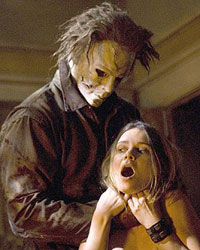
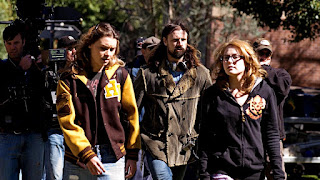
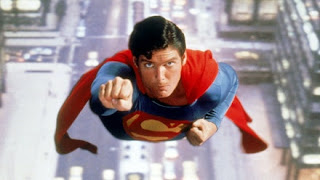



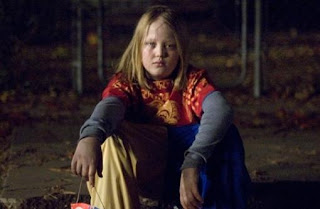




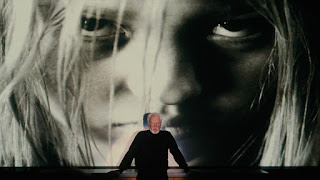


No comments:
Post a Comment